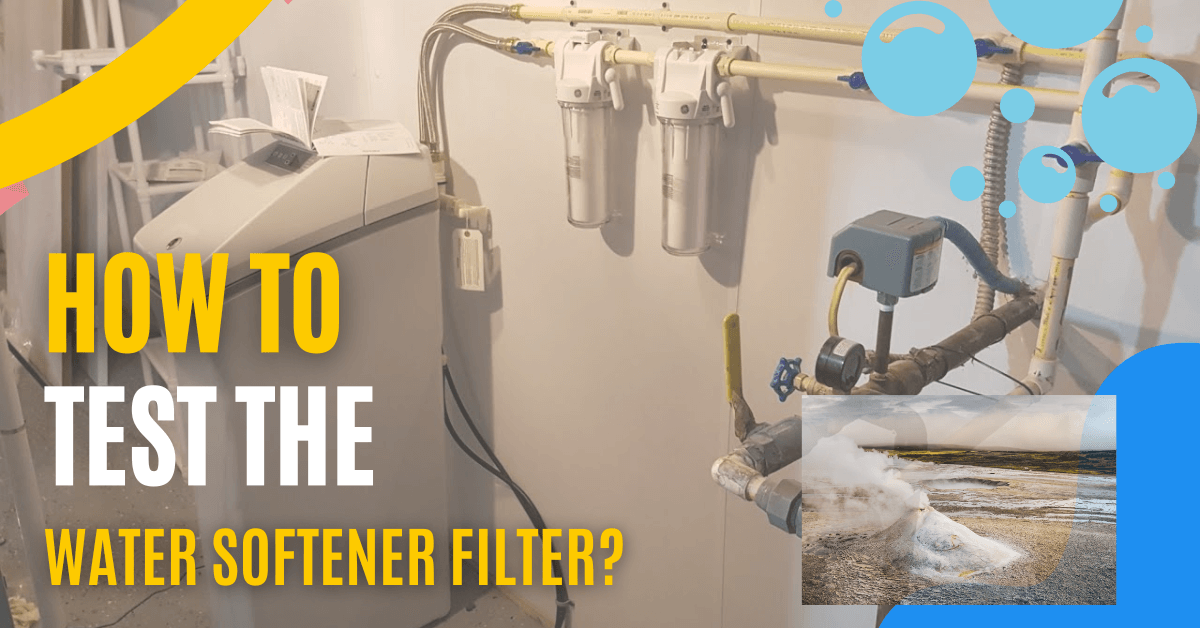Testing water softener filters are an important part of maintaining a healthy home and plumbing system. This process ensures that the filter is working properly and trapping any particles or sediments that could cause damage to your pipes or appliances. Regular testing can also help you identify when it’s time to replace the filter, so you don’t have to worry about any potential problems arising.
To test a water softener filter, you will need to collect samples of the water before and after it goes through the filter. You can do this by collecting a sample of tap water in a clean container and then running the same amount of water through the filter. Once you have both samples, you can compare them to check for any differences in color, clarity, or odor. If there is a noticeable change, this indicates that the filter is working properly.
If you don’t notice any difference between the two samples, however, this may mean that your filter needs to be replaced. To double-check and make sure, you can use a water testing kit to check for contaminants or sediments that could be present in the unfiltered sample but not the filtered one. You may also want to have your water tested by a professional if you are unsure of the results or if something seems off.
Testing your water softener filter regularly is an important step in keeping your home and plumbing system healthy. By doing so, you can catch any potential problems early on and take the necessary steps to correct them before they become bigger issues.
What Is A Water Softener Filter?
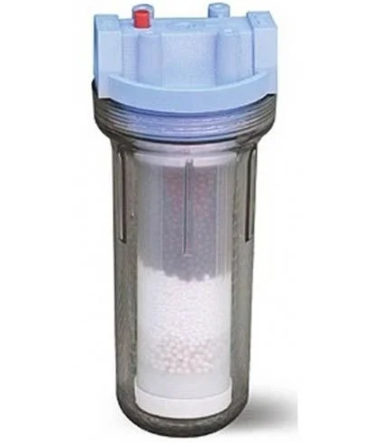
A water softener filter is a device that helps to soften hard or untreated water by removing minerals like calcium and iron from it. This makes the water easier on plumbing systems, appliances, and clothing because it reduces the amount of buildup caused by heavy metals. A water softener filter also improves the taste of tap water and helps keep fixtures looking newer for longer. It is an important part of any home’s water filtration system and should be tested regularly to make sure it is working properly.
How Does Water Softener Work?
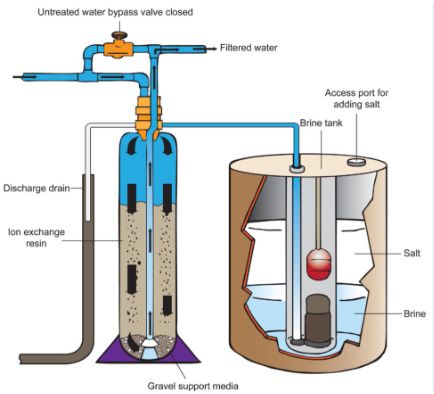
Water softeners use a process called ion exchange to reduce the hardness of the water. This involves passing the hard water through an ion-exchange resin, where positively charged ions in the water are replaced with sodium or potassium ions. The sodium ions are then flushed away, and the softened water is ready for use. Water softener filters can also be used to reduce the number of contaminants and sediments in water, making it cleaner and safer to drink.
How Often Should You Test A Water Softener Filter?
It is recommended that you test your water softener filter at least once every six months or whenever you notice any changes in the water’s taste or odor. However, if you live in an area with a lot of hard water, it may be necessary to test the filter more frequently. This will help you make sure the filter is functioning properly and that any sediments or particles are trapped by it.
Testing Water Softener Filter/How To Evaluate Water Softener Filter Performance
- Visual checks: One of the simplest ways to evaluate a water softener filter is by taking a visual look at it. Look for signs of wear and tear, such as cracks or rust on the housing or discoloration inside the filter. This can indicate that the filter needs to be replaced.
- Water sample comparison: Collect two samples of water. One sample should be collected before the water passes through the filter and one after. Compare them for any differences in color, clarity, or odor. If there is a noticeable difference between the two samples, this indicates that the filter is working properly.
- Hardness test strips/Water Hardness Kit: You can also use a water hardness test strip or a specialized water hardness kit to check the level of minerals and contaminants in your water. This will help you determine if the filter is effectively removing them from the water.

Hardness test strips - Professional testing: If you are still unsure about whether your filter is doing its job, it may be best to consult a professional. A water testing specialist can provide you with an accurate reading of the levels of contaminants and minerals in your water and help you make sure that your filter is functioning correctly.

Professional testing - TDS meter test: A TDS meter (Total Dissolved Solid) is a device that measures the total amount of dissolved solids in water, including minerals, salts, and other contaminants. This is an effective way to measure the effectiveness of your filter as it will show you how much of these solids are being removed from your water.
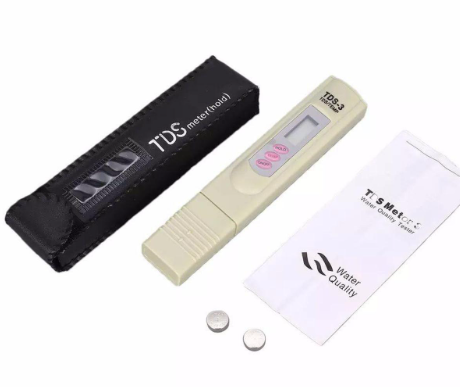
TDS meter test - Laboratory analysis: If you need a more detailed analysis of your water, you can send a sample to an independent lab for testing. This will give you an accurate indication of the levels of contaminants and minerals in your water so that you can be sure that your filter is doing its job properly.

Laboratory analysis - Check with City or Town Water Source: If you’re still unsure, contact your local water company or municipality to solve the issue. They will be able to provide information on the quality of your city’s water and offer advice on how to keep it clean and safe.
- The Soap Test: The soap test is a simple method for testing the effectiveness of your water softener filter. Collect a sample of softened water, and then add a drop of liquid dishwashing detergent or facial cleanser to it. If the mixture forms bubbles, this indicates that the water is still hard and needs to be further treated with a softening filter.
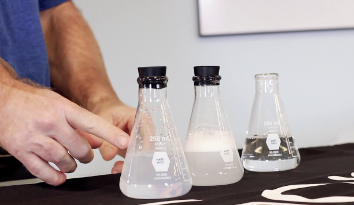
The Soap Test
Importance Of Testing Your Water Softener Filter
- Maintains overall water quality: Testing your water softener filter regularly helps ensure that the water you’re using is free of contaminants and sediments, making it safe to use.
- Helps identify filter issues: Regular testing also allows you to identify any issues with your filter or the filtering process quickly and easily so that they can be fixed before they become a bigger problem.
- Helps save money: Testing the efficiency and performance of your water softener filter regularly can help you save money in the long run by catching any issues quickly and preventing damage to your plumbing system and fixtures.
Interpreting Water Softener Testing Results
- Poor filtration: The test results may also indicate poor filtration if they show excessive levels of minerals and contaminants in the water. This could be a sign that your filter needs to be replaced or the filters need to be cleaned.
- Mechanical problems: If the test results show an excessive water flow rate, this could indicate a mechanical issue such as a clogged nozzle or a broken valve, which will need to be repaired or replaced.
- Regeneration cycle too long: If the test results show that your water is still hard even after a regeneration cycle, this could mean that the cycle is too long. Shortening the cycle can help improve the effectiveness of your softener and ensure your water is being filtered properly.
- Brine dose too low: If the results show that your water is still hard even after a regeneration cycle, this could indicate that the brine dose –the amount of salt added to the water – is too low. Increasing this level can help improve the effectiveness of your softener and ensure your water is being filtered properly.
- Fouled resin: If the test results show that your water is still hard even after a regeneration cycle, this could indicate that the resin in your softener has become fouled with contaminants and needs to be replaced.
- Excessively hard water: If the test results show that your water is still excessively hard, this could indicate a problem with the filter or an issue with the incoming water supply. In these cases, it’s important to contact a professional for further assistance.
- Unusually high water usage: If the test results show that your water usage is unusually high, this could indicate a problem with the filter or an issue with the incoming water supply. In these cases, it’s important to contact a professional for further assistance.
Salt-Related Problems:
If the test results show that your water is still hard, this could indicate a problem with the salt in your softener, such as too much or too little.
- Salt Bridging: The test results may also indicate a problem with salt bridging, which is when the salt particles in your water softener don’t dissolve properly and form a solid block. This can cause clogs and other issues with your softener and need to be addressed as soon as possible.
- No Salt: if the test results show no salt in your water, this indicates that the filter is not being used or isn’t functioning properly.
- Salt Mushing: If the test results show excessive levels of salt in your water, this could mean that the salt is “mushing” – forming a paste-like consistency due to too much moisture. This can cause sediment buildup and other issues with your softener, so it’s important to address this issue quickly.
FAQs
Is There A Filter In My Water Softener?
Yes, most water softeners will have a filter as part of the system. The filter helps to remove impurities that can cause scale buildup and other issues with your water.
Can I Test The Efficiency Of My Water Softener?
Yes, you can test the efficiency of your water softener by doing a hardness test and analyzing the results. This will help you identify any problems with the filter, salt levels, and other factors that could be impacting the performance of your softener.
What Should I Do If My Water Softener Is Not Working Properly?
If your water softener is not working properly, it’s important to contact a professional for further assistance. They can help you diagnose any problems with the filter, salt levels, or other factors that could be impacting the performance of your softener.
Can You Clean The Water Softener Filter?
Yes, you can clean the filter in your water softener. You should follow the manufacturer’s instructions for cleaning and maintenance to ensure that your filter is working properly and providing maximum efficiency.
How Do I Know If My Water Filter Is Clogged?
If your water filter is clogged, you may notice reduced water pressure or a decrease in the quality of your water. It’s important to inspect and clean your filter regularly to ensure it’s working properly and providing maximum efficiency.
How Often Should My Water Softener Be Tested?
It’s recommended that you test your water softener at least once every three months to ensure it’s working properly and providing maximum efficiency. If you notice any changes in the quality or taste of your water, it’s important to test it more often.
How Do I Check My Water Softener Resin?
You can check the resin in your water softener by doing a hardness test and analyzing the results. This will help you identify any problems with the filter, salt levels, and other factors that could be impacting the performance of your softener.
If I Have Hard Water, Do I Need A Water Softener?
Yes, if you have hard water, it’s recommended that you install a water softener. This will help to reduce scale buildup and other issues caused by hard water.
Do I Need To Add Salt To My Water Softener?
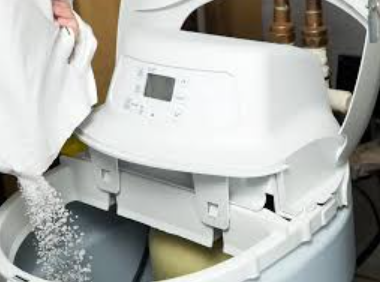
Yes, most water softeners require the addition of salt in order to function properly and provide maximum efficiency. It’s important to follow the manufacturer’s instructions for adding salt and maintaining your softener.
Can Too Much Salt Damage My Water Softener?
Yes, if you add too much salt to your water softener, it can cause damage to the system and reduce its efficiency. It’s important to only use the recommended amount of salt as indicated by the manufacturer.
Can I Use A Water Softener Without Salt?
No, most water softeners require the addition of salt in order to function properly and provide maximum efficiency. It’s important to follow the manufacturer’s instructions for adding salt and maintaining your softener.
How Do I Know If My Water Softener Is Working Properly?
You can check the efficiency of your water softener by doing a hardness test and analyzing the results. This will help you identify any problems with the filter, salt levels, and other factors that could be impacting the performance of your softener.
Is It Bad To Let Your Water Softener Run Out Of Salt?
Yes, it’s important to maintain the proper levels of salt in your water softener. If you let your water softener run out of salt, it can cause damage to the system and reduce its efficiency. It’s important to only use the recommended amount of salt as indicated by the manufacturer.
Do I Need To Replace My Water Softener Filter?
Yes, it’s important to replace the filter in your water softener periodically. This will help ensure that your filter is working properly and providing maximum efficiency. It’s recommended that you follow the manufacturer’s instructions for replacing the filter.
Do I Need To Descale My Water Softener?
Yes, it’s important to descale your water softener periodically. This will help reduce scale buildup and other issues caused by hard water. It’s recommended that you follow the manufacturer’s instructions for descaling your softener.
How Can I Maximize The Efficiency Of My Water Softener?
You can maximize the efficiency of your water softener by regularly testing and maintaining it. This includes inspecting the filter, checking salt levels, and descaling the system. It’s also important to follow the manufacturer’s instructions for adding salt and maintaining your softener.
Can Water Be Too Soft?
Yes, it is possible for water to be too soft. If your water is too soft, it can lead to a decrease in the effectiveness of cleaning products and make your drinking water taste salty. It’s important to have your water tested periodically to ensure that you are getting the right amount of hardness or softness for your needs.
Do I Need To Test My Water Softener Regularly?
Yes, it’s important to check the efficiency of your water softener periodically. This will help you identify any problems with the filter, salt levels, and other factors that could be impacting the performance of your softener.
What Are Signs My Water Softener Is Not Working Properly?
Signs that your water softener is not working properly include scale buildup, decreased efficiency, and salty-tasting drinking water. If you notice any of these signs, it’s important to have your system inspected and checked for problems.
Is A Water Softener Filter Necessary?
Yes, a water softener filter is an important part of the system. It helps remove impurities, improve water quality, and maintain the efficient performance of the softener. It’s important to follow the manufacturer’s instructions for replacing the filter periodically.
Can I Use Regular Salt In My Water Softener?
No, it’s important to only use special water-softening salt in your system. Regular salt can contain impurities that can damage the softener and reduce its efficiency. It’s recommended that you follow the manufacturer’s instructions for adding salt to your system.
Do I Need Professional Help To Install A Water Softener?
It’s generally recommended that you have a professional install your water softener. This will ensure that the system is set up correctly and that it’s functioning properly. Professionals can also inspect the system to identify any issues and make sure that it provides maximum efficiency.
Conclusion
It’s important to regularly test and maintain your water softener in order to ensure that it’s functioning properly and providing maximum efficiency. This includes regularly checking the filter, salt levels, descaling the system, and following the manufacturer’s instructions for adding salt and maintaining the system. If you have any questions or would like professional help with installation, it’s best to consult a professional.

Meet Jeffrey B Roberts, your dedicated guide into the realm of water science and technology. As a hydro biologist with an insatiable curiosity, Jeffrey’s journey has been one of unraveling the mysteries of water systems and advocating for clean, safe water for all.
With an academic background steeped in the sciences, Jeffrey’s passion lies at the crossroads of science, technology, and nature. A deep fascination with plants and genetics has not only enriched their understanding of aquatic ecosystems but has also propelled them into the world of water softening solutions.
Believing that clean water is a basic human right, Jeffrey’s writing transcends the technicalities, making the intricate world of water softening accessible to all. Through their blog, they ardently share insights, tips, and breakthroughs, empowering readers to make informed decisions about their water quality.
Beyond his role as a prolific writer, Jeffrey is a respected figure in the hydronics industry education. With years of hands-on experience, they serve as an adjunct professor, nurturing the next generation of experts at the Thaddeus Stevens College of Technology. His involvement on the Technical Advisory Board further cements their dedication to pushing the boundaries of innovation in water technology.
